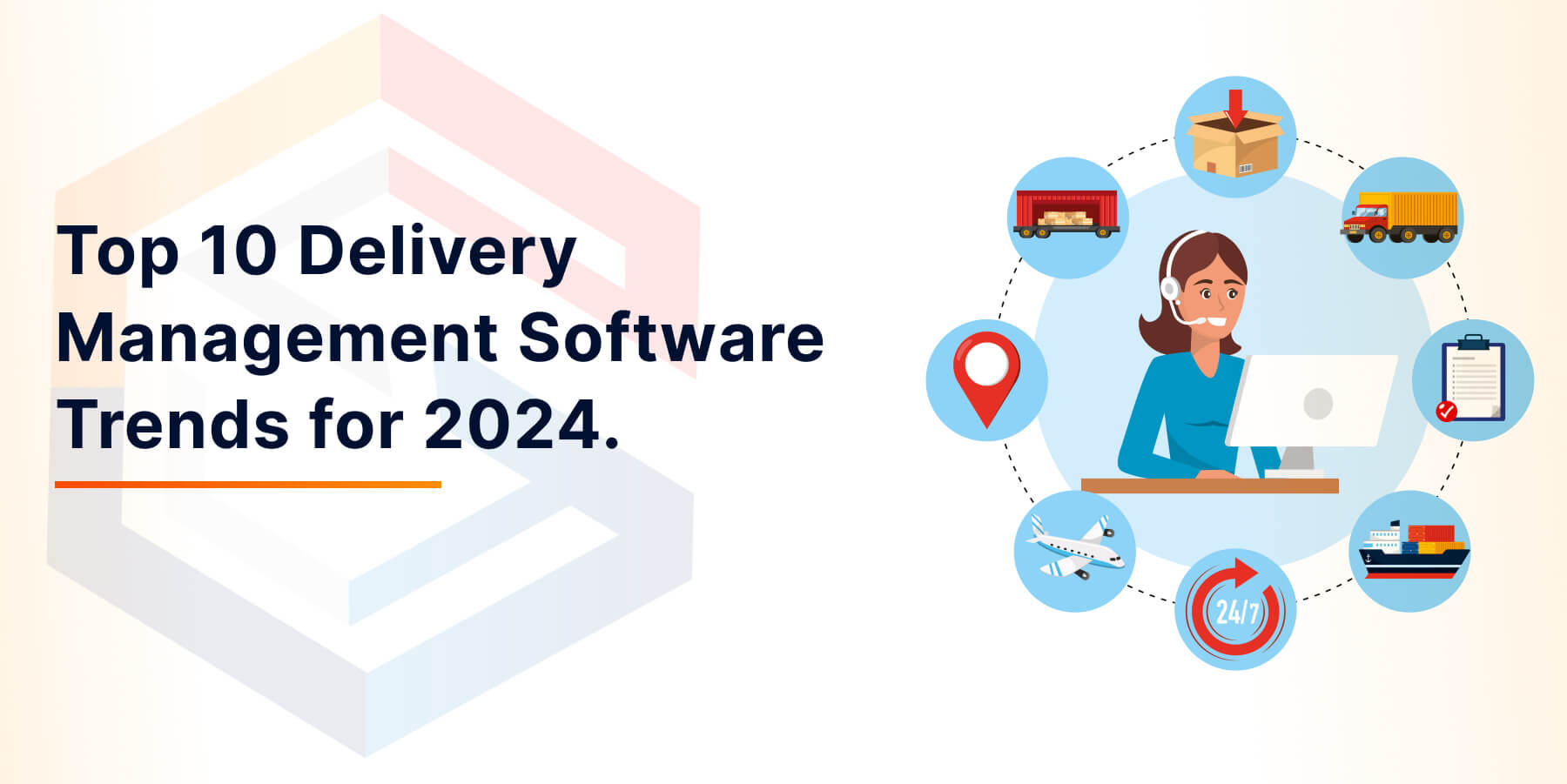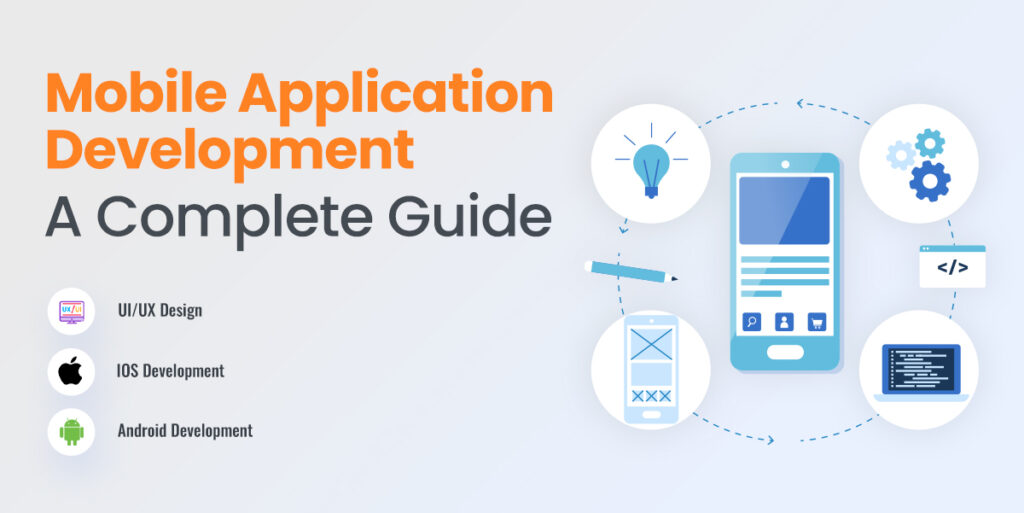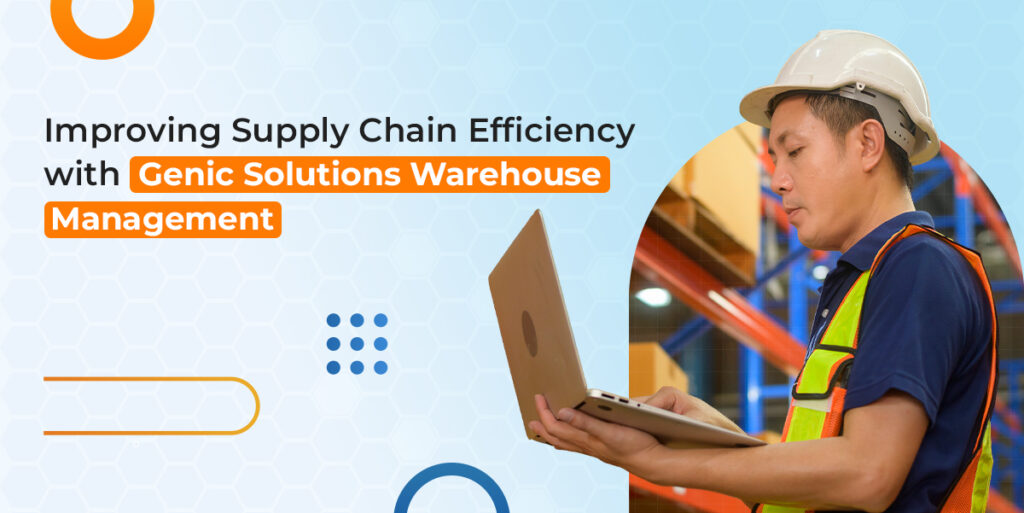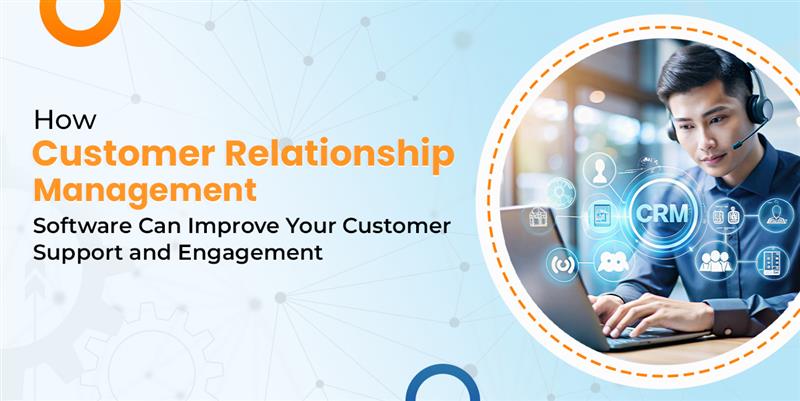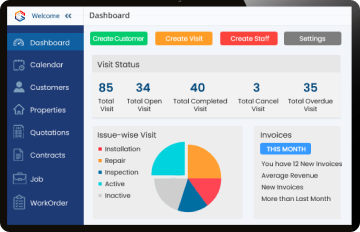The rapid development of technology had a huge influence on the logistics and delivery management sector. Bringing in a new era of efficiency and superior customer service. As organizations attempt to satisfy the ever-increasing needs of consumers. The use of modern delivery management software has become important. This dynamic landscape is highlighted by the use of modern technologies. For example artificial intelligence (AI), machine learning (ML), and blockchain technology. Which are revolutionizing traditional delivery procedures. By providing transparency and dependability throughout the delivery process. These advancements in technology not only enhance the efficiency of operations but also elevate the experience for clients. As we look ahead, organizations who seek to achieve in the fast-paced world of logistics and delivery services have to understand and adopt these trends.
1. Enhanced Tracking and Real-Time Visibility
One of the maximum significant advancements of delivery management software is the enhanced functionality for real-time tracking and visibility. With the integration of Global Positioning System (GPS) and Internet of Things (IoT) technologies, companies can now offer their clients extraordinary transparency for the duration of the delivery manner. This trend indicates a shift toward more responsive and customer-centric logistics answers. Real-time tracking not only meets the growing demand for instant information but also empowers organizations to optimize their delivery routes, lessen delays, and enhance overall operational performance. Consequently, this trend is setting a new standard for delivery management, in which transparency and performance go hand in hand.
2. Strategic Planning with Predictive Analytics
The integration of forward-looking analytics into systems managing transportation signifies a pivotal shift. Through the examination of past data, entities can foresee forthcoming hurdles and prospects, thus empowering them to make decisions that refine operations and elevate the quality of service. Such analytics adopt a forward-thinking stance in logistics, equipping enterprises to predict and strategize for possible setbacks. This approach is key in enhancing the efficiency of resource distribution, the management of stock levels with greater accuracy, and the adherence to delivery timelines with unwavering accuracy. Therefore, the role of predictive analytics transcends mere improvement of strategic planning; it revolutionizes it, fostering a more nimble and robust response to evolving circumstances.
3. Leading Innovations with Advanced Technologies
Advanced technologies are spearheading innovations in delivery management systems. These technologies are crucial in automating intricate tasks, ranging from the creation of shipping labels to the optimization of delivery pathways. They don’t just automate; they evolve and adjust, consistently elevating delivery efficiency through the analysis of live data. The shift towards integrating these advanced technologies is fostering improvements across various aspects, diminishing expenses, and markedly improving the customer journey. The involvement of these technologies in delivery management underscores the industry’s dedication to employing cutting-edge tools for smarter, more streamlined operations.
4. Embracing No-Contact Deliveries
Amidst a global pivot towards prioritizing health and safety, the adoption of no-contact delivery practices has become a prominent trend. This approach significantly reduces direct interaction between delivery staff and recipients, mitigating safety concerns while maintaining the convenience of service. Leveraging technological advancements, no-contact deliveries are facilitated through the use of intelligent lockers, electronic confirmation, and various innovative strategies, ensuring transactions are both smooth and secure. The shift towards such delivery methods underscores the logistics sector’s adaptability and commitment to addressing modern-day challenges, highlighting a dedication to customer-centric service.
5. Enhancing the Consumer Experience
Central to these technological evolutions is the ambition to uplift the consumer experience. Software designed for managing deliveries is progressively incorporating capabilities aimed at improving the consumer’s journey, including live package tracking and adaptable delivery alternatives. These enhancements go beyond mere functionality; they are revolutionizing how consumers perceive and engage with delivery services, establishing new benchmarks for service quality. Offering consumers increased autonomy and insight into their package deliveries not only elevates service standards but also fosters trust and loyalty, assets of immeasurable worth in the current competitive landscape.
6. The Evolution of Delivery Management through SaaS
The rise of Software as a Service (SaaS) frameworks is transforming the landscape in delivery management. Growing trends depict that more preference is accorded to systems that can be scalable, secure, and consumer-friendly. SaaS solutions are outstanding and would offer companies the ability to change their operations with a minimum of advanced IT investment and often include the most recent features and security protection. It ensures that businesses will not lose touch with advancements in delivery management. The adoption of SaaS in delivery management simplifies duties and, therefore, leads to improved efficiency in operations.
7. Advancements in Last-Mile Delivery Technologies
The adoption of cutting-edge technologies like drones, self-driving vehicles, and robotics is transforming the landscape of last-mile delivery. These will set to make the process of delivery faster, cheaper, and environment-friendly. For instance, drones can avoid normal roads; hence, they can be used to deliver products directly to the consumers’ premises at a remarkable speed. In addition, self-driven vehicles will have the opportunity to dynamically perfect the delivery pathways, such as reduced fuel consumption and carbon emissions. Integration of these emerging technologies into delivery management systems is creating a modern benchmark of last-mile logistics that reiterates efficiency, environmental care, and customer satisfaction.
8. Blockchain for Enhanced Supply Chain Visibility
Chain Visibility Blockchain technology is revolutionizing delivery management by allowing unique visibility and security down the supply chain. It decentralizes the ledger and takes care of transactions securely so that they cannot be tampered with, ensuring the integrity of the data from the origin to delivery. It, therefore, brings an important aspect of transparency in building trust among clientele and partners by allowing real-time monitoring of the goods to confirm authenticity. The ability of blockchain technology to simplify documentation and, more importantly, automate contracts may go a long way to slash the cost of administration, hence improving the efficiency and strength of the supply chain.
9. Effortless E-commerce Integration
The effortless fusion of e-commerce platforms with delivery management systems represents another evolution in logistics. This fusion allows for the immediate exchange of data, facilitating the automation of order processing, inventory control, and delivery planning. By connecting online sales with physical logistics, companies can provide a more seamless and dependable shopping journey for their customers. This not only improves customer satisfaction but also promotes operational effectiveness, as companies can more accurately forecast demand, regulate inventory, and refine delivery pathways.
10. Focusing on Mobile Usability and Enhancing Information Protection
In the current era of technology, ensuring easy access through mobile devices and safeguarding data are of utmost importance. Providers of software for managing deliveries are putting more emphasis on creating solutions that are accessible via mobile, granting both the individuals making deliveries and the customers access to up-to-date information and control throughout the delivery process. Adopting a mobile-first strategy guarantees that the operations involved in logistics can be handled remotely, increasing adaptability and promptness. Concurrently, the focus on protecting data is at an all-time high. As the threat of cyber intrusions escalates, software designed for managing deliveries is being equipped with sophisticated encryption methods, robust verification processes, and ongoing surveillance to secure confidential data and preserve the confidence of customers.
To sum up, the outlook for managing deliveries is promising, with digital advancements significantly influencing the methods of transporting and delivering goods. By remaining informed and flexible, companies can utilize these developments to foster growth, enhance operational efficiency, and provide outstanding service in the forthcoming years. The path to this future is filled with potential for creativity and change in the logistics and delivery management sector.

